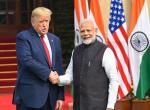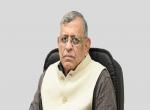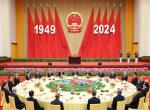The 2018 General Elections in Pakistan are over and the Imran Khan led Pakistan Tehreek-e-Insaaf Party (PTI) emerged as the single largest Party in the National Assembly, and formed the Government. Most of the parties alleged rigging and refused to accept the election results. Few have even gone to the extent of asking for a re-election. Implying that the dice was loaded in favour of the PTI by the establishment (a euphemism for military), these petulant parties alleged lack of a level playing field even during the run up to the elections. Regardless of the bickering, these elections certainly mark a defining moment for the evolution of democracy in Pakistan.
In its 70 years of tumultuous history, this will be the second transition from one democratically elected government to another. Secondly, very few commentators in Pakistan believed that Imran Khan would be able to unseat Nawaz Sharif’s Pakistan Muslim League-Nawaz Party (PML-N), despite insinuations about the establishment’s hidden hand behind Imran. They remained apprehensive that Imran Khan, with his support base primarily in the urban areas, would not be able to breach the forts of patronage-based system, commonly known as Patwari-Thanadar culture that enables the ruling elite to protect their turf and perpetuate power. However, the extent of victory clearly underlines that these seemingly impregnable forts of status quo have been overcome by the personal appeal of Imran Khan. This could happen primarily because he could successfully communicate to the masses the link between massive corruption, epitomised by the Sharif and Zardari families, the all-round destitution and under-development in Pakistan. Masses seem persuaded by his promise of establishing a Welfare State (Falahi Riyasat).
This transition will be keenly watched by all the countries with stakes in the region. The West has valid reasons to be frustrated with Pakistan and its military, because it is certainly drifting away from the western orbit and moving ever closer to China. Therefore, the western media built up a sustained propaganda aimed at raising doubts about the election process, and went to the extent of equating conviction of Nawaz Sharif on corruption charges with judicial coup.
However, for India, events in Pakistan assume utmost criticality as our bilateral relationship has cost dearly both in terms of blood and treasure. Ever since Partition took place, relationship between India and Pakistan is plagued by mutual distrust. Despite having three major wars, the most intractable issue of Kashmir remains unresolved. Cross-border terrorism originating from Pakistan hangs like the sword of Damocles over the tenuous peace between the two countries. As we remain perpetually perched just a mishap away from war, defence expenditures soar and we hang together at lowest rungs of human development indices. So, as we pay our homage to our martyrs of Kargil, it is imperative for us to to evaluate this transition dispassionately, sans the western narrative. History reminds us that we cannot afford misjudgments.
It is really heartening to note that India has come up with its own independent assessment of the situation. Welcoming the results, the Ministry of External affairs (MEA) stated: “the people of Pakistan had reposed their faith in democracy through elections, and India desires a prosperous and progressive Pakistan at peace with its neighbours. We hope that the new government of Pakistan will work constructively to build a safe, stable, secure and developed South Asia free of terror and violence”. India’s posture got a further boost when PM Narendra Modi called up Imran Khan to congratulate him for his victory and hoped that democracy will take deeper roots in Pakistan.
Were the Elections Fair?
There is enough indication that the military did act upon levers behind the scenes to smoothen things out for Imran Khan. Although unsubstantiated, critics did claim that the timing of the conviction of Nawaz Sharif and his immediate arrest was done under duress. These accusations gained credence when a sitting Judge of Islamabad High Court, Justice Shaukat Aziz Siddiqui, while addressing the bar recently, levelled allegations against security agencies, claiming that they were manipulating judicial proceedings.
It is also alleged that desertion from the outgoing Prime Minister Nawaz Sharif’s PML-N was a result of coercion from the Army. Pro-Nawaz TV channels were blacked out by the cable TV operators. Similarly, circulations of newspapers such as Dawn, were restricted. Journalists known for their anti-military stance were threatened or abducted, as was Gul Bukhari, a known military critic who was briefly kidnapped by masked men from Lahore. Last but not the least, the military deployed over 370,000 soldiers in order to ensure that each of the 85,000 polling stations was secured by the Army. However, the European Union Election Observation Mission (EU EOM) to Pakistan expressed satisfaction on the overall conduct of the elections, and said that the efforts of the Election Commission of Pakistan (ECP) were impressive and appreciable. Although they did mention that the smaller parties complained that they could not keep pace with large national parties, especially regarding expensive political advertising, even if the laws sought to ensure a level-playing field.
As in the past two terms, Nawaz Sharif had a prickly relationship with the military during his current term. The series of showdowns, particularly ‘The Dawn Leaks’, and his insinuations against the military after his removal over Panama papers, might be provocations enough for the Army.
However a series of developments of the past decade does impair the capability of the establishment to profoundly influence the electoral process. The higher Judiciary had received massive boost, both in terms of independent authority and credibility following the lawyers’ movement in 2007. Democratic processes have been gaining incremental strength with each passing election, something which was also testified by the EU observers. “On election day, polling was assessed as well conducted and transparent,” it said, “However, counting was somewhat problematic with staff not always following the procedures.” Large presence of electronic as well as social media did contribute in revealing the irregularities or coercion exercised.
Imran Khan is not known to enjoy a very warm relationship with the military. When Musharraf clamped emergency in November 2007, all other leaders were house-arrested but Imran was sent to jail. Imran consistently favoured talks with the Tehrik-e-Taliban Pakistan (TTP), contrary to the Army’s preference for military operations. However, the failure of government talks with TTP and an attack on the Karachi airport in mid-2014 prompted General Raheel Sharif to immediately launch operation Zarb-e-Azb in North Waziristan, and everyone including Imran fell in line. Therefore, it would be too naïve on part of the Generals to ignore the fact that Imran has shown enough independence to be led by his nose into doing the military’s bidding. Furthermore, the mandate won by Imran Khan is pretty broad-based, cutting across all provinces. Therefore, it could be anybody’s guess as to what extent military could have altered the outcome.
Imran and Islamists
Of course, there are instances which clearly demonstrate that Imran Khan had gone soft on the militant groups, and even engaged with the Islamists. Just on the eve of elections, PTI leader Asad Umar, who is also the nation’s new Finance Minister, had announced that the founder of banned Harkat-ul-Mujahideen, Maulana Fazlur Rehman Khalil has joined the Party. Khan’s, Khyber Pakhtunkhwa (K-P) Government had released Rs 300 million for Darul Uloom Haqqania, the alma mater of many Taliban members of Maulana Sami-ul Haq. Subsequently, K-P Government explained that this aid was part of mainstreaming of the religious seminaries.
The PTI’s manifesto dwells at length on the mainstreaming of Madrasas. The widespread presence of religious seminaries preaching extreme ideologies, a youth bulge and high rates of unemployment present Pakistan with a dangerous prospect of surge in further radicalisation and intensification of extremism. Therefore, there is some logic in PTI’s way of dealing with this problem, since mere reliance on force could lead to a blow back, further aggravating the already fragile situation. Imran Khan had held a view since long that the emergence of TTP, the Pakistani Taliban, and the preceding radicalisation was the result of military operations initiated by Musharraf at America’s behest. Imran is frequently labelled as a Taliban sympathiser or ‘Taliban Khan’ for taking this position.
Rhetorically, Imran Khan sounds more pro-Islamists than he really is when it comes to policy making. The PTI’s manifesto does not shy away from discussing the uncontrolled population growth. It cites lack of prevalence of contraception as the cause of this problem, and promises to build consensus with religious leaders to publicise their endorsement at the community and household level about the birth control methods. This is a fairly reasonable way of dealing with a problem, taking into cognisance the widespread illiteracy and the sway the mullahs and madrasas have over the masses because the state has retreated from its primary function of governance.
Nawaz Sharif and India
It would be in order to look as to how the last incumbent Nawaz Sharif fared when it came to dealing with India, military and terrorism. He is getting a get kid glove treatment in the international media, perhaps his strategy of deflecting the corruption charges and acting as victim of the Military seems to be paying off.
The ostentatious lifestyle enjoyed by the Sharif family borders on vulgarity in the backdrop of extremely pathetic conditions of the general population. His ownership of Avenfield House, which led to his conviction and arrests, is in the swankiest location of London’s Mayfair. Daily mail, a UK based daily, reported that all properties owned by Sharifs in the UK are estimated to be over £30 million.
Nawaz Sharif hardly took foreign policy seriously and ran his government for four years without a foreign minister. The litany of U-turns, be it the Ufa Declaration of 2015, or the infamous Dawn Leaks clearly underlined that all the pro-India and anti-terrorism pronouncements were merely tactical ploys to ingratiate himself internationally rather than any strategic attempts at course correction.
When Prime Minister Modi took over, the domestic situation in Pakistan was a shade better. Nawaz Sharif still had the political capital to manoeuvre the foreign policy. Therefore, he could attend Modi’s inaugural, despite being snubbed for his own inaugural by Dr. Manmohan Singh a year earlier. There was near political unanimity in support for his decision to travel to India, even giving the impression of a green signal from the General Headquarters (Army Headquarters in Rawalpindi). However, when India called off the foreign secretary level talks, Nawaz Sharif’s decision to engage with India was questioned in Pakistan. Then the usual civil-military dynamics took over check-mating all his initiatives.
Similarly, the Sharif government was hardly prepared to face the military onslaught following the omission of Kashmir in the joint Indo-Pak Declaration at Ufa in July 2015. The Army retaliated and the Pakistani National Security advisor (NSA) said that there could not be any dialogue without inclusion of Kashmir, went on to ask for “more evidence and information” from India in the 26/11 Mumbai terror attack case, and even raised the status of investigation into the Samjhauta blast case. The government went overboard to compensate for the omission of Kashmir. In a déjà vu moment for Indian policy makers, Pakistan High Commissioner Abdul Basit invited Hurriyat leaders for Eid Milan. During the reception, Mr Basit said: “…. nothing unusual about our invite to Hurriyat leaders. …. Pakistan will continue extending its full moral, political and diplomatic support to the people of J&K in their legitimate struggle for self-determination as provided for in the UN Charter ….”2
Another similar instance of quick retreat after failed attempt to ambush the military was in October 2016, when The Dawn published a report suggesting that Pakistan’s foreign secretary had told the military leadership to act against the militants (Haqqani Network and India centric groups such as Jaish-e-Mohammad) or face international isolation. The Government not only denied these reports with alacrity, but also, in order to distance the leadership from the episode, sacked the Information Minister.
When it comes to dealing with terrorism, there is hardly any evidence to suggest that Nawaz Sharif had any consistent approach. Few years back there were media reports about a Punjab Minister confessing to making budget provisions to fund the activities of Jamat-ud-Dawa (JuD), the political arm of Lashkar-e-Taiba (LeT). As late as 2015, Rana Tanveer, a Federal Minister in Mian Sahib’s cabinet, had said that they could not outlaw JuD since it was a charitable and not a terrorist organisation, and went on to say that the Government had no evidence against Hafiz Saeed or his group. A report of 2016 in The Diplomat said that PML-N in Punjab has been adamantly opposed to military operations against local militants because of its parochial political interests.
Nawaz Sharif’s innate inability to effectively negotiate the complexities of dealing with the military but also his position with regards to the Kargil operations by Pakistan Army is revealed in the recently released book “From Kargil to the Coup”, by Nasim Zehra.3
Foreign Minister Sartaj Aziz expressed reservations after the Army’s presentation on Kargil Operations was showed to the civilian leadership in May 1999. Mr. Aziz pointedly asked the Prime Minister Nawaz Sharif whether the Army’s operation was not contrary to the undertaking of Lahore Declaration. Nawaz Sharif’s reply was astounding, specifically for those who recite paeans about his approach towards India, he said: Sartaj Aziz Sahib, can we take Kashmir through paperwork?”
Immediately after this briefing when Nawaz Sharif was apprised by his colleagues that the Army had in fact crossed the LoC, he realised the imminent the diplomatic ramifications. He called the Army Chief General Musharraf again. The Prime Minister asked Musharraf, “Did you cross the LoC?” Musharraf responded, “Yes, sir, I did.” “And on whose authority?” queried the Prime Minister. The Army Chief was quick to respond, “On my own responsibility and if you now order, Sir, I will order the troops’ withdrawal.” Nawaz Sharif turned to his Defence Secretary and said, “Did you see? He has accepted his responsibility!” Sharif, perhaps visualising himself as the ‘liberator’ of Kashmir, added, “Since the Army is part of the Government, from today onwards we will support the Army.” After this rather brief meeting, the Army was to get the complete support of the country’s leadership.
So is there a need to shed tears for the outgoing dispensation? Surely not.
Imran and the Transition
What consequences might Imran Khan’s victory portend for India? At least in the near term nothing will change. However, if we take a fresh look at certain aspects of his victory speech, we could find certain ingredients that have the potential to trigger a paradigm shift in our relationship. Chief amongst them is his promise of establishing a welfare state, as opposed to a security state in service of American geopolitical interests; developing more balanced relationship with the Middle East; and a nuanced reference to Kashmir and Baluchistan while avoiding reference to UN Security Council.
The promise of establishing a welfare state comes with a plethora of changes and entails governance of the country based on justice and equity. The Pakistan State has completely failed to deliver the basics to its masses. Over 22 million children are out of school, the nation ranks amongst the highest in terms of child mortality, and around half of its children are malnourished and experience stunted growth.
The problem with Pakistan has been that its civilian leadership - since its inception - failed to establish its legitimacy, and was always seen serving the narrow elite constituted by the feudal lords, or the Waderas of Sindh. This lack of legitimacy created a political vacuum that was quickly filled up by the astute Generals. The dearth of civilian legitimacy has been on public display during the military coups when people distributed sweets as civilian governments were sent packing.
Long before partition of India, Britain had come to realise the strategic importance of North Western Frontier of India in safeguarding their oil interests in the Middle East and of restricting growth of Russian influence. This was articulated by Churchill, when he famously said that “we should keep a bit of India”. For achieving their aims, they adroitly employed Islam to partition India that gave rise to emergence of a weak state, Pakistan, which from its birth had to rely on the West to sustain itself. In a seamless transition during the 1950s, the US replaced UK as the security guarantor of the Middle East, controlling the flow of oil from Gulf, and Pakistan (read Pakistan military) became USA’s cold war ally for the Middle East. Thus began the evolution of Pakistan as a security state, with military at the core at the expense of welfare of the masses. The primary role of the state became defence and the rest had to flow from it, as Gen Zia-ul Haq said: “... the economic prosperity of a country depended on the military’s capability to defend its geographical frontiers”.
It is quite evident that the western (read American) interests and the ensuing security-centric relationship with Pakistan led to the emergence of what Hasan Askari Rizvi calls as a “praetorian state where the military has acquired the capability, will, and sufficient experience to dominate the core political institutions and processes.” This relationship enabled Pakistan to furiously run its nuclear programme under the benign gaze of the US. During the 1980s, when US needed Pakistan military’s support for fighting the Soviets in Afghanistan, all cautions were thrown to the winds despite tremendous pressure from non-proliferation lobbies of the US Congress. The Reagan administration continuously shifted red lines on nuclear proliferation to accommodate Gen Zia’s wishes. To resolve the congressional impasse on aid to Pakistan, the Pressler Amendment was passed in 1985 ostensibly to restrain Pakistan. However, many commentators said that this was drafted in consultation with Pakistan, and the threshold for stopping the aid to Pakistan was raised from earlier red line of five percent enrichment to possessing a nuclear weapon.4
Western governments have shown no compunction in directly dealing with the GHQ over the heads of civilian leadership. So, the western arguments against the military dominance in Pakistan are merely rhetorical, arising out of their frustrations when they fail to coerce the Pakistan’s military to do its bidding.
The fact of the matter is that the military almost enjoys monopoly over the formulation and exercise of the nation’s foreign policy and more specifically Pakistan’s relationship with India. Therefore, it would be naïve to imagine that any prime minister, regardless of rhetoric, can overnight subordinate the military. It will be painstakingly slow process and if Imran Khan is successful in delivering on even few of his promises and could establish the credibility of the civilians, then we might witness creeping growth of civilian control. A successful transition of Pakistan from a security state to a welfare state might hasten the process of normalisation of civil–military relationship.
In this regards, Imran’s promise is to have a mutually beneficial relationship, instead of security centric relationship wherein US gives aid to fight their wars. If Pakistan starts moving in this direction, it surely has a great potential.
Conclusion
In the short term, India will face almost an identical set of conditions, as it has faced until now. However, in the medium to long term, the situation could improve if Imran Khan is able to deliver even partly on his domestic goal of establishing a welfare state. Furthermore, Imran Khan has consistently opposed the war in Afghanistan and the US military presence in the region, so we must see if he succeeds in steering his foreign policy away from a web of security centric relationship wherein Pakistan fights other’s wars in return for aid. Success in these fronts might herald emergence of a state where people, through their elected representatives, gain control over the military leadership, defence and security policy-making in accordance with comprehensive national interests.
Furthermore, the global geo-politics is undergoing tectonic shifts. American global dominance is no longer uncontested - be it America’s retreat from direct confrontation in Syria, Russia seizing Crimea, or China asserting its influence in the East and South China Sea. China and Russia have come closer to jointly face the challenges from the US. In this backdrop, the importance of regional groupings such as Shanghai Cooperation Organisation (SCO) will grow, as Putin pointed out that the SCO had “small” objectives when it was founded two decades ago but that it was now evolving into a larger global force.
For sustained stability in the region therefore, we must work towards arresting the temptation of short term tactical gains by allowing outside powers to meddle in region. Instead, regional powers must jointly endeavour to retrieve the Af-Pak region from being an arena of geo-political rivalries that began with the Great Game in the early nineteenth century, and have over the decades, turned this region into a cesspool of extremism and terror. Wishes, hopes, postures and rhetoric are not sufficient; we must alter the fundamental nature of forces at work.
Although one might sense discordant notes when India decides to cut oil imports from Iran allegedly under US pressure, it is also apparent that India has started moving in the direction of regional cooperation – Iran, Afghanistan, Central Asian republics, and South and East Asian neighbours - in a manifestation of increasing strategic autonomy. A sequence of recent events beginning with the informal summit in Wuhan with President Xi, and in Sochi with President Putin, point towards the of course PM Modi’s foreign policy. He articulated this while addressing the Shangri La Dialogue: “… All of this is possible, if we do not return to the age of great power rivalries. I have said this before: Asia of rivalry will hold us all back. Asia of cooperation will shape this century.”
References:
- PTI, ‘Pakistan needs more evidence on 26/11, says no talks without Kashmir on agenda’, Indian Express, July 14, 2015.
- PTI, ‘Pakistan High Commission Invites Kashmiri Separatists for Eid Milan’, Indian Express, July 13, 2015.
- Naseem Zehra, From Kargil to the Coup, Events that Shook Pakistan, Sang E Meel Publications, Lahore, pp. 162 and 164.
- C. Christine Fair, Fighting to the End, The Pakistan Army’s Way of War, Oxford University Press, 2014, pp. 208.
(The author is a Switzerland based professional and political analyst)
(The paper is the author’s individual scholastic articulation. The author certifies that the article/paper is original in content, unpublished and it has not been submitted for publication/web upload elsewhere, and that the facts and figures quoted are duly referenced, as needed, and are believed to be correct). (The paper does not necessarily represent the organisational stance... More >>
Image Source: https://gdb.rferl.org/A5FDFEA2-6F05-4EE2-ACA0-9B9360323781_cx0_cy5_cw0_w1023_r1_s.jpg










Post new comment